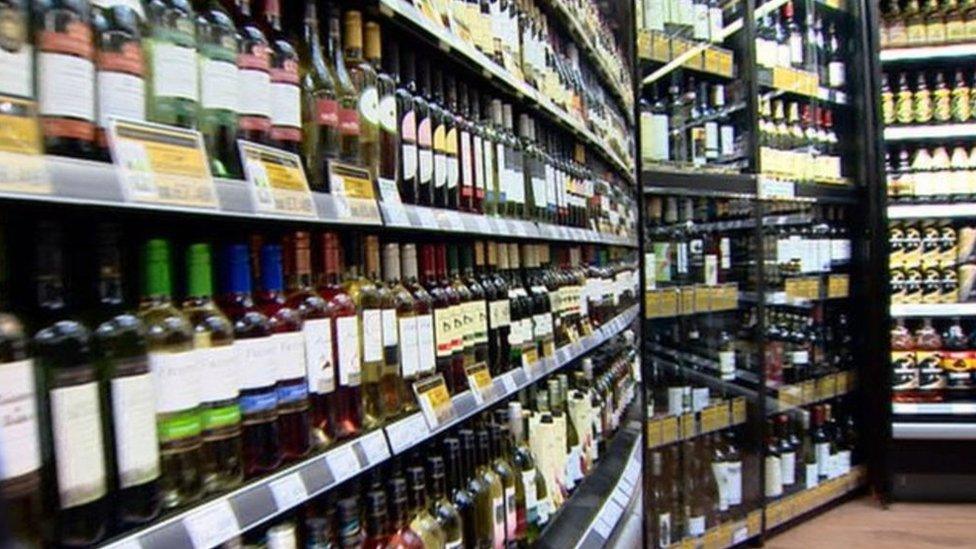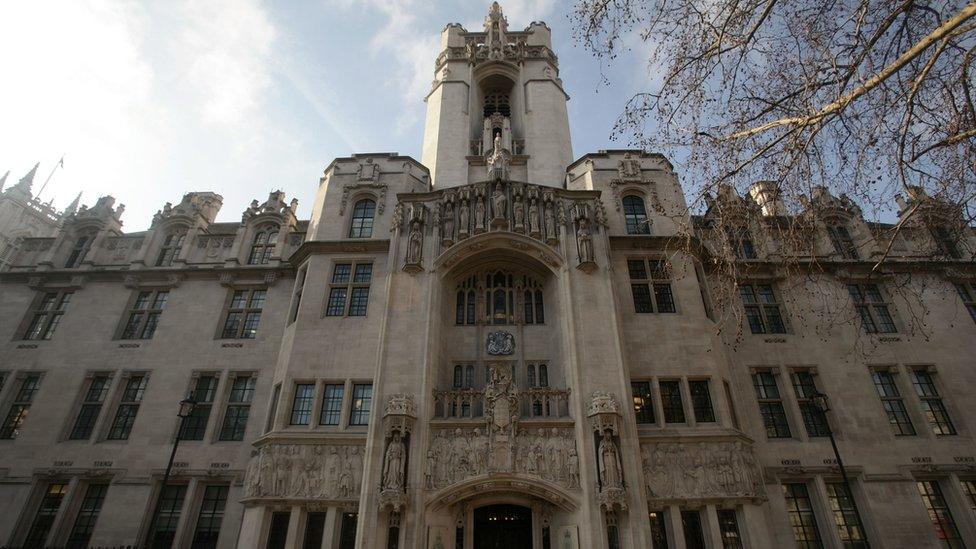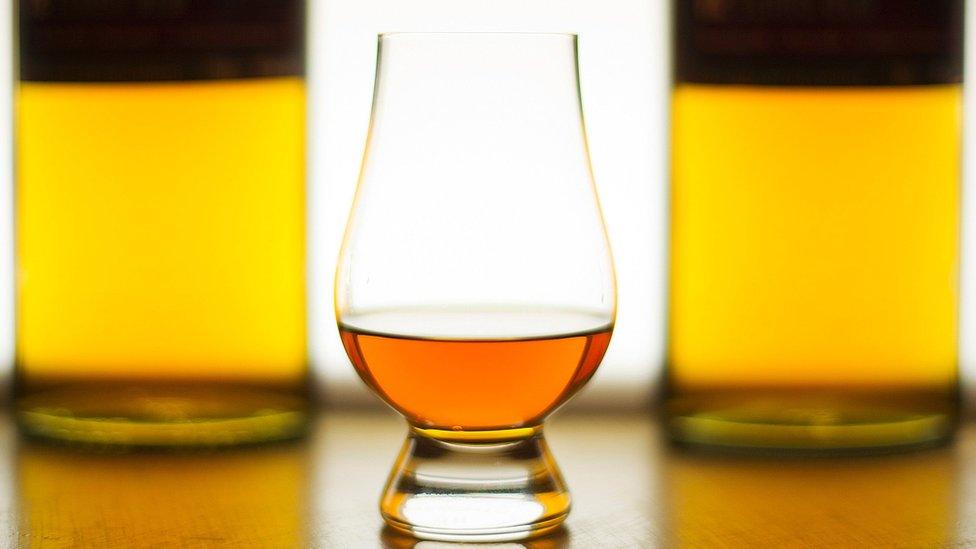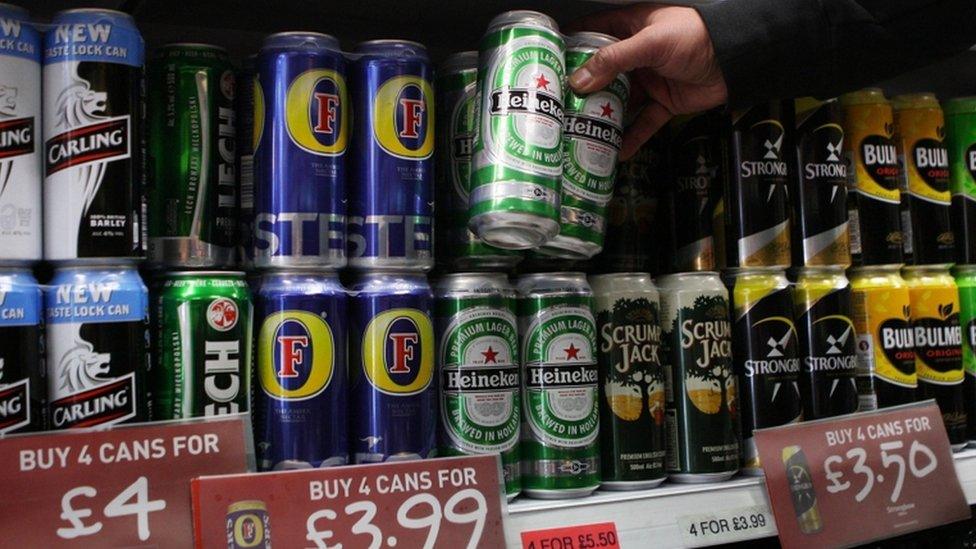Supreme Court judges retire to consider minimum pricing appeal
- Published

The Scottish government wants to introduce a minimum price per unit of alcohol as soon as possible
Supreme Court judges have retired to consider the latest appeal against minimum pricing of alcohol in Scotland.
MSPs approved plans for a minimum price per unit of alcohol in 2012, but it has been tied up in court challenges amid claims it breaches European law.
The Scotch Whisky Association has taken the fight to the UK's highest court, where a two-day hearing was held.
Justices will now consider the arguments put forward, and will issue a judgement in due course.
The Alcohol (Minimum Pricing) Scotland Act 2012 aims to help address health and social problems associated with heavy drinking by setting a minimum base price for each unit of alcohol. Ministers say this means the law targets cheap, strong drinks preferred by problem drinkers, without impacting adversely on more moderate tipples.
The SWA contends that the plan breaches EU regulations, as it could potentially act as a restriction on the free movement of goods. They say there are "less restrictive" ways of acting to influence alcohol prices, such as excise duties and indirect taxation.
Aidan O'Neill QC, speaking for the group in the Supreme Court, said the case could set a far-reaching precedent and have an impact on international trade. He said the nub of the SWA argument was "why not tax?".
On the second day of the hearing, he told the court: "Frankly we have not had a satisfactory response in accord with the requirements of EU law.
"You are not allowed to discriminate against products that you think are undesirable because they are cheap.
"The whole point of a system of fair competition, which the single market seeks to achieve, is that the state can't come in and say that some of those prices, formed under the free activity of the market, are not desirable.
"That goes against the absolute fundamentals of the free market. You cannot target some products because of their price and insist that those products and those products alone must have their prices raised."

The case has arrived at the Supreme Court after a five-year legal battle
Defending the legislation, Lord Advocate James Wolffe said it was designed to work alongside taxes, as a measure specifically targeted at "hazardous and harmful drinkers".
He said there was a "strong evidence base" that minimum pricing could provide an "effective intervention" in Scotland, but said that any impact on intra-EU trade would be relatively minor. He said the potential saving of thousands of lives and tens of thousands of alcohol related hospitalisations would outweigh such a relatively minor impact on trade.
Mr Wolffe said simply raising taxes would have a "disproportionate" impact on "moderate drinkers", saying: "The aim is not to reduce consumption for the sake of it, but to reduce alcohol-related harm.
"That is why the aim is expressed primarily in terms of targeting hazardous and harmful drinkers, as they are the drinkers who are most at risk of alcohol-related harm."
Legal battle
The latest phase of the five-year legal battle will be decided in London, having already passed through courts in Edinburgh and Luxembourg. After an initial challenge at the Court of Session failed in 2013, the SWA appealed to the European Court of Justice (ECJ).
The European court said the legislation might break EU law if other tax options would prove as effective, but said it was "ultimately for the national court to determine" whether they did.
The Scottish court subsequently backed the measures for a second time, ruling that tax measures "would be less effective than minimum pricing".
However in December 2016 the Court of Session judges then allowed the SWA to go to the Supreme Court to challenge their ruling.
The Scottish government has indicated that it wants to implement the policy "as soon as practicably possible".
- Published24 July 2017

- Published21 December 2016

- Published21 October 2016
